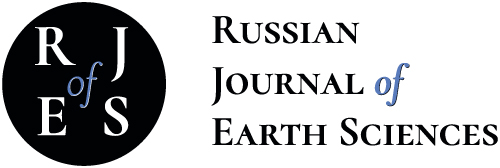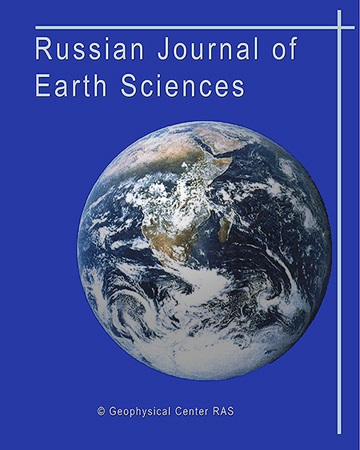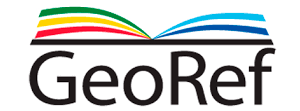All the transionospheric signals interact with the ionosphere during their passage through ionosphere, hence are strongly influenced by the ionosphere. One of most important ionospheric effects on the transionospheric signals is the delay both in range and time. Under this investigation we have studied the variability of ionospheric range delay in GPS signals. To accomplish this study we have used the GPS measurements at a low latitude station, IISC Bangalore (13.02° N, 77.57° E) during January 2012 to December 2012. We studied the diurnal, monthly as well as seasonal variability of the range delay. We also selected five intense geomagnetic storms that occurred during 2012 and investigated the variability of delay during the disturbed conditions. From our study we found the diurnal variability of the range delay is similar to the diurnal pattern observed for the Total Electron Content (TEC). The delay is maximum during the month of October while lowest delay is found to occur in the month of December. During summer season the range delay in GPS signals is less while the largest delay occurs during the equinox season. The variability of delay during the geomagnetic storms of 09 March 2012, 24 April 2012, 15 July 2012, 01 October 2012 and 14 November 2012 were also studied. All these geomagnetic storms belonged to intense category. We found that the value of delay is strongly increased during the course of geomagnetic storms.
Ionosphere, range delay, TEC, geomagnetic storm
1. Bhattacharya, S., Dubey, S., Tiwari, R., Purohit, P. K., Gwal, A. Effect of magnetic activity on ionospheric time delay at low latitude, // J. Astrophys. Astron., 2008. - v. 29 - no. 1-2 - p. 269.
2. Bhattacharya, S., Purohit, P. K., Gwal, A. K. Ionospheric time delay variations in the equatorial anomaly region during low solar activity using GPS, // Indian J. Radio Space, 2009. - v. 38 - no. 5 - p. 266. EDN: https://elibrary.ru/YCEBSX
3. Conker, R. S., El-Arini, M. B., Hegarty, C. J., Hsiao, T. Modelling the effects of ionospheric scintillation on GPS/satellite based augmentation system availability, // Radio Science, 2003. - v. 31 - no. 1 - p. 1-1.
4. Coster, A. J., Gaposchkin, E. M., Thornton, L. E. Real-time ionospheric monitoring system using GPS, // J. Inst. Navig., 1992. - v. 39 - no. 2 - p. 191.
5. Davies, K. Ionospheric radio propagation - New York: Dover Publications Inc.., 1966.
6. Doherty, P. H., Delay, S., Valladares, C., Klobuchar, J. Ionospheric scintillation effects in the equatorial and auroral region - Salt Lake City, Utah: The Institute of Navigation., 2000.
7. Groves, K., Basu, S., Quinn, J. M., Pedersen, T. R., Falinski, K. A comparison of GPS performance in scintillation environment at Ascension Island - Salt Lake City, Utah: The Institute of Navigation., 2000.
8. Hegarty, C., El-Arini, M., Kim, T., Ericson, S. Scintillation modeling of GPS wide area augmentation system receivers, // Radio Science, 2003. - v. 36 - no. 5 - p. 1221.
9. Hofmann-Wellenhof, B., Lichtenegger, H., Collins, J. Global Positioning System: Theory and Practice, 4th edition - Wien: Springer-Verlag., 1992. - 390 pp.
10. Jain, A., Tiwari, S., Jain, S., Gwal, A. K. TEC response during severe geomagnetic storms near the crest of equatorial ionization anomaly, // Indian J. Radio Space, 2010. - v. 39 - no. 1 - p. 11. EDN: https://elibrary.ru/RLIAWL
11. Kaplan, E. D. Understanding GPS: Principles and Applications - Norwood, MA: Artech House., 1996. - 554 pp.
12. Kleusberg, A. Atmospheric models from GPS // GPS for geodesy, 2nd edition, edited by P. Teunissen - Wien: Springer., 1998. - p. 599.
13. Klobuchar, J. A. Polarization of VHF waves emitted from geostationary satellites, // J. Geophys. Res., 1975. - v. 80 - no. 31 - p. 4387.
14. Klobuchar, J. A. Design and Characteristics of the GPS ionospheric time delay algorithm for single frequency users - Las Vegas, NV: New York, Institute of Electrical and Electronic Engineers., 1986.
15. Klobuchar, J. A. Ionospheric Effects on GPS // Global Positioning System: Theory and Applications, Volume I, edited by B. W. Parkinson and J. J. Spilker - Washington, DC: American Institute of Aeronautics and Astronautics., 1996. - p. 485.
16. Komjathy, A. Global Ionospheric Total Electron Content Mapping Using the Global Positioning System - Fredericton, New Brunswick, Canada: University of New Brunswick., 1997.
17. Luo, M., Pullen, S., Ene, A., Qiu, D., Waller, T., Enge, P. Ionosphere threat to LAAS: Updated model, user impact and mitigations - Long Beach, CA: The Institute of Navigation., 2004.
18. Misra, P., Enge, P. Global Positioning System: Signals, Measurements and Performance, 2nd edition - Massachusetts: Ganga Jamuna Press., 2006. - 569 pp.
19. Shukla, A. K., Shinghal, P., Sivaraman, M., Bandyopadhyay, K. Comparative analysis of the effect of ionospheric delay on user position accuracy using single and dual frequency GPS receivers over Indian region, // Indian J. Radio Space, 2009. - v. 38 - no. 1 - p. 57.
20. Skone, S. H. The impact of magnetic storm on GPS receiver performance, // J. Geodyn., 2001. - v. 75 - no. 6 - p. 457.
21. Walker, J. K. Spherical cap harmonic modeling of high latitude magnetic activity and equivalent sources with sparse observations, // J. Atmos. Terr. Phys., 1989. - v. 51 - no. 2 - p. 67. DOI: https://doi.org/10.1016/0021-9169(89)90106-2; EDN: https://elibrary.ru/XVQVES














